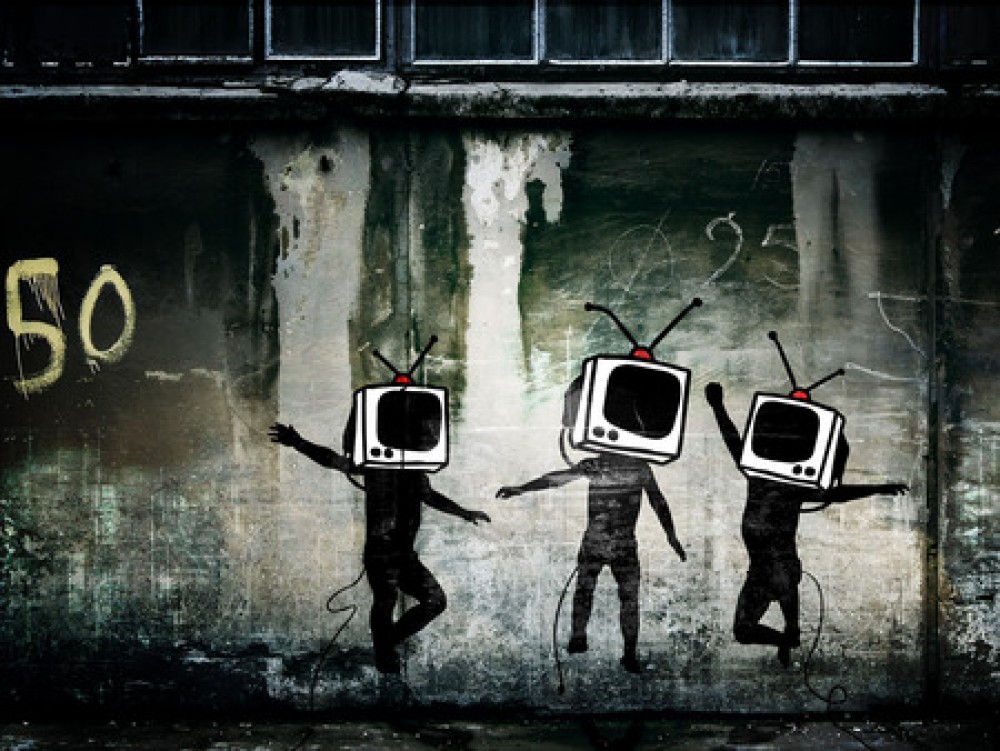Showcase Post 2
The birth of television left radio, the book and the news paper in the gutters. Now with the explosion of the internet television too may be falling into the dark ages. We have internet television now, we have smart phones. If ‘video killed the radio’ then internet killed the TV. Television is becoming second rate, especially when advertising is concerned. If you’re not waiting until the TV show you love is out on DVD then you are probably illegally downloading it or scoring it off a friend who has. With recording your shows you can fast forward the adds, or with DVDs or pirating skip the adds all together. You are even capable of watching episodes on specific channels on their websites, in this case however there are usually adds involved. Today the news on the majority of television stations have very brief coverage. It is rushed and unless the story is extremely big you’ll hear 1-2 minutes of it and you’ll forget you even saw it a few days later. The newspaper business has fallen and numbers have dropped in purchases. With the increase in online news resources how long will it be before the television news too falls into the dead zone? Nick Bilton’s blog in the New York Times Bits section of the website has a similar idea, ‘Don’t Look for a TV in television’s future.’ People will be looking at television through their phones, computers and tablets. The only thing that still has a very powerful audience these days is reality TV and it is flimsy at the best of times. Reality shows like Australia’s Got Talent or The X-Factor are ones that triumph. These sorts of shows actually get the audience involved. They are opened to real people with hopes and dreams and are asked to vote in to save them. If there is singing or dancing involved I can easily understand the appeal but when it comes to shows like Big Brother or Survivor it’s a different story. These sorts of shows require the viewer to watch basic activities of everyday lives. At least with So You Think You Can Dance and X-Factor the people involved actually have talent and are passionate about a specific thing that can bring beautiful emotions to the audience. Those other shows however are just trying too hard to stand out on camera so they all start to swirl into a sea of crap television where nothing really interesting happens. Big Brother for example ran for eight seasons. By that stage it was considered the worst show on television. It had fallen to its former glory of the first season. The Ten Network declared it would never run again. Yet here we are in 2012 and channel nine has revamped it and stated it to be new/different/better. Reality shows claim to be better and different every year but they always result in the same things just with different people and perhaps some more money. It’s become a cliché and sadly whenever a country puts their own spin on it there is little enthusiasm. Television tries so hard to appeal to audiences. Everyone wants something different. You have your sports, news, reality soap operas, game shows, dramas, infomercials, kids and foreign. Today Australia along with the rest of the world, has leaped into digital television. Now we have seventeen stations on free-to-air television. Before the digital launch we only had five channels. Yet like pay TV so much of it is not worth watching. Increases in reruns have overrun the TV. Sometimes it always feels like its daytime television but on prime time. This madness has resulted because we now have so many channels and not enough shows to air that are actually new. Why is it that only on pay tv you are able to watch shows like what is aired on HBO in the states? It’s this evil corporation that is denying the word what it wants. This is the reason why there is so much piracy in the world. If the states released films and television shows at the same time around the world no one would pirate them. The same goes for any other country. It seems bizarre that they have not figured it out. The one thing that remains constant is that fact that we are all still glued to the idiot box, in any shape or form, whether it is the computer, mobile phone or TV. We are guarded by the fact that without them what would we do? Sure it helps with deforestation but we have simply jumped from one overly used object to another.
We’ve plummeted into a world of technology and we will never go back to a past where it did not exist. Those fears of the machines taking over seem to become more realistic every day. Factories in some places all work with the lights off because their all controlled by machines. It’s a weird world we live in. Looking to the future I think television will exist just not as we see it now. We might be walking around one day with a chip in out head that with the control of our mind turn on the TV and its being projecting into our eyes and no one else can see. Now wouldn’t that be insane.
